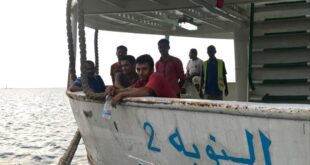Early indications of a massacre in Moura, Mali have been denied by the Malian government, and it is thus far hindering any independent onsite investigation by international bodies.
There are reports that Russian mercenaries, from the notorious Wagner Group, may have been involved in or had knowledge of the Moura massacre, given their role in training and advising Malian security actors.
The victimization and stereotyping of ethnic Fulanis, in particular, as supporters of jihadist groups will continue after the Moura Massacre, with negative implications for civilian security and the longer-term counterinsurgency effort.
With the locus of al-Qaeda and Islamic State activity shifting from the Middle East to Africa, the security situation in Mali is likely to deteriorate further.
On April 1, the Malian government announced a military success with its killing of more than 200 “militants” in Moura. However, further reporting from Moura and images on social media indicated that the picture was not as it initially seemed. Rather, the evidence revealed that most, if not all, of the deceased in Moura were civilians. Human Rights Watch has alleged that the military operation from March 27 to 31 in Moura involved the execution of approximately 300 men, arguing that “the incident is the worst single atrocity reported in Mali’s decade-long armed conflict.” Mali has been reticent to allow independent human rights organizations or international bodies, such as the United Nations, to investigate the events that transpired in Moura. Mali instead has promised that a military tribunal would investigate the alleged massacre; however, the likelihood of this being politicized is high, and it provides opportunities for the Malian authorities to cover up the massacre.
The Malian government claims that there was a counterterrorism operation directed against al-Qaeda-affiliated Group for Supporters of Islam and Muslims (JNIM), which does operate in the vicinity of Moura. However, if a massacre did indeed occur, it suggests that the military unfairly blamed civilians for JNIM’s incessant attacks. This perpetuates the long-running stereotype in the Sahel that Fulanis necessarily support JNIM, simply because JNIM’s recruits often come from, albeit not exclusively, the region’s Fulani population. Further complicating any investigation of the Moura Massacre is the involvement of Russian mercenaries, specifically from the Wagner Group, in training and accompanying the Malian army on counter-terrorism missions. Although Russia often denies any official association with these mercenaries, and they allegedly are only in Mali to train soldiers, some have been injured in combat with JNIM, including recently when a Russian trainer died after a vehicle drove over a landmine. This gives credence to early reporting that Russian personnel were with the Malian soldiers when the Moura Massacre took place.
More broadly, the brutal and indiscriminate Russian campaigns in cities, such as Aleppo, Syria, and Mariupol, Ukraine, have caused the full destruction of civilian infrastructure and many civilian deaths. What occurred in Moura is eerily similar to Russian campaigns abroad and indicates the possibility of Russian influence on the so-called counterterrorism strategy employed in Moura. The end result will nevertheless still be further alienation of Malian civilians from the Malian government and army, which could further drive civilians, and especially Fulanis, into the hands of JNIM or at least prevent the government from winning their support. The Malian government has already indicated that it favors the presence of the Wagner Group in lieu of international actors like France in beefing up its security capacities; the Moura massacre is a glimpse of what could be a more regular occurrence as the Malian government consolidates its dependence on Russian mercenaries.
The situation in Moura reflects the inability of Mali to either politically or militarily stem the tide of JNIM; Islamic State in Greater Sahara (ISGS), which has most recently become Islamic State’s new “Sahel Province”; or other bandits, vigilantes, and militias in the country and along its borderlands. On the political end, the military coup in 2021 that overthrew the democratically elected president in Mali has led to a period of political instability. This, in turn, has alienated European countries and caused them to either reduce their military support to Mali or withdraw altogether, as occurred with France earlier this year. On the military end, Mali’s struggling counter-insurgency and waning support from European partners has left a void, prompting Mali to turn to Russia. Russia already appears to have been able to gain support from Mali and other African countries in diplomatic forums like the United Nations; among the countries that abstained from condemning Russia’s invasion were several African states in which the Wagner Group has maintained a presence. The over-reliance on kinetic counterterrorism measures at the expense of more holistic and preventive approaches means the insurgency can only be expected to become further entrenched in Mali. With the locus of al-Qaeda and Islamic State activity shifting from the Middle East to Africa—which has witnessed a significant growth in the number of attacks perpetrated by Islamic State “provinces”—the security situation in Mali is likely to deteriorate further. An added complication might arise if the Wagner Group is forced to shift focus to Ukraine and leaves further gaps in security throughout Africa, which could further destabilize those countries relying on it for some semblance of security.
 Eurasia Press & News
Eurasia Press & News



